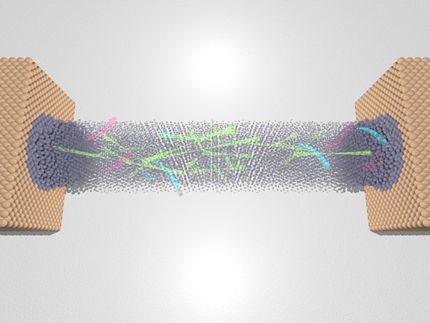Analysis of causality principle for the conductivity of graphene
Advertisement
Vladimir Mostepanenko, Chief Research Associate of KFU Cosmology Lab and Pulkovo Astronomical Observatory, explains, "Despite graphene layers' extremely small width, it has proven to be a firm material which conducts electricity even under zero temperatures when density of charge carriers also equals zero. But something absolutely unexpected was that this residual conductivity can be expressed through fundamental physical constants - electron charge and Planck constant. Graphene has been used successfully in dozens of electronic devices and has been found in interstellar matter."
Graphene's unusual qualities led to speculation that the causality principle may not be observed for it. The authors, Vladimir Mostepanenko and Galina Klimchitskaya, proved that the principle is preserved for graphene. Through the direct analytic calculation it was shown that the real and imaginary parts of graphene conductivity, found recently on the basis of first principles of thermal quantum field theory using the polarization tensor in (2+1)-dimensional space-time, satisfy the Kramers-Kronig relations precisely.
The results are important for further inquiries into reflective and absorptive qualities of graphene.
Original publication
G. L. Klimchitskaya and V. M. Mostepanenko; "Kramers-Kronig relations and causality conditions for graphene in the framework of the Dirac model"; Phys. Rev. D; 2018
Most read news
Other news from the department science

Get the chemical industry in your inbox
By submitting this form you agree that LUMITOS AG will send you the newsletter(s) selected above by email. Your data will not be passed on to third parties. Your data will be stored and processed in accordance with our data protection regulations. LUMITOS may contact you by email for the purpose of advertising or market and opinion surveys. You can revoke your consent at any time without giving reasons to LUMITOS AG, Ernst-Augustin-Str. 2, 12489 Berlin, Germany or by e-mail at revoke@lumitos.com with effect for the future. In addition, each email contains a link to unsubscribe from the corresponding newsletter.
































































